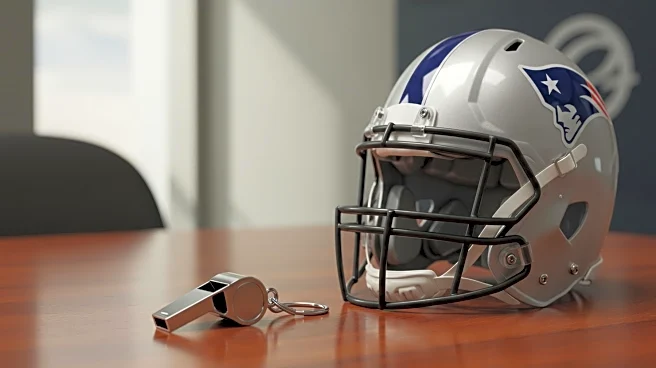What is the story about?
What's Happening?
The NCAA has imposed significant penalties on the University of Michigan's football program following a sign-stealing scandal. Former head coach Jim Harbaugh received a 10-year show-cause penalty, while former assistant Denard Robinson was given a three-year show-cause penalty. The sanctions also include a 25% reduction in official football visits for the 2025-26 season and a 14-week ban on recruiting communications. The university plans to appeal the ruling, arguing that the decision contains errors in interpreting NCAA bylaws and conclusions contrary to the evidence presented.
Why It's Important?
These penalties could have a substantial impact on Michigan's football program, affecting its ability to recruit top talent and maintain competitive performance. The show-cause orders against Harbaugh and Robinson may hinder their future coaching opportunities. The decision also highlights ongoing challenges within the NCAA's enforcement capabilities, as noted by Urban Meyer, who commented on the diminishing role of the NCAA as an enforcement body. The appeal process may further influence NCAA policies and the governance of college sports.
What's Next?
Michigan's planned appeal could lead to a reassessment of the penalties, potentially altering the sanctions imposed. The university's response and the outcome of the appeal may set precedents for how similar cases are handled in the future. Stakeholders, including other universities and athletic programs, will be closely monitoring the situation to gauge its implications for NCAA enforcement practices.
Beyond the Headlines
The case raises questions about the ethical standards in college sports and the effectiveness of current NCAA regulations. It may prompt discussions on the need for reform in how infractions are investigated and penalized, potentially leading to changes in NCAA governance and oversight.

















